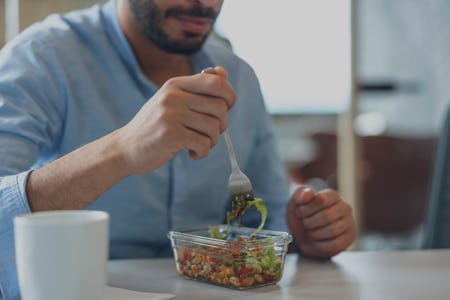Junk Food Is Bad For Your Brain, Study Finds
If you eat a lot of ultra-processed junk foods, a study find that you might be speeding up cognitive decline.

Junk food has long been targeted as a primary cause of poor nutrition. High in sodium, saturated fat, and sugar, eating too much of these ultra-processed foods increase the risk of chronic diseases such as obesity, heart disease, type 2 diabetes, and certain cancers. And junk food’s rap sheet is getting even longer, as a study recently published in JAMA Neurology found an association between the consumption of ultra-processed food and cognitive decline.
The study followed 10,775 participants between the ages of 35 and 74 for nine years beginning in 2008. Researchers analyzed what percentage of participants' daily caloric intake was from ultra-processed foods, as well as cognitive performance assessed by immediate and delayed word recall, word recognition, phonemic and semantic verbal fluency tests, and standardized tests measuring executive function.
Data indicates that after an average of eight years, individuals with ultra-processed food consumption above the first quartile showed a 28% faster rate of global cognitive decline and a 25% faster rate of executive function decline than those in the first quartile.
While participants shared a common trait of employment as public servants from one of six Brazilian cities, the sample was otherwise diverse. 54.6% were women, 53.1% were White, and 6106 56.6% had at least a college degree.
The findings don’t change public health recommendations, which currently advises limiting junk food consumption. But they do bolster the case against ultra-processed foods, which unfortunately tend to be cheap and easy food options that people tend to find quite tasty.
So what are ultra-processed foods, exactly? The category includes foods that are highly manipulated due to the fact that they go through multiple processes like molding, milling, or extrusion and contain multiple added ingredients that are highly manipulated.
Some ultra-processed foods are easy to identify. Very few people would be surprised to find soft drinks, candy, hot dogs and chips on the list of examples. But some other products like packaged soups and sweetened cereals can be a bit more stealthy, especially when manufacturers slap buzzwords like “natural” or “organic” on labels.
With the prevalence of junk food on store shelves and in restaurants, limiting consumption can be challenging. Especially on a stressful, busy day when the convenience (and, let’s be honest, taste) of McDonald’s fries and a milkshake starts calling. Aware of the reality of the situation, most experts recommend limiting ultra-processed foods instead of asking people to eliminate them.
There are some well-known simple steps to limit junk food in your diet, though some argue it’s more effective to focus goals on what you want to add to your life as opposed to what you want to limit or eliminate. So maybe committing to drinking more water or eating one piece of whole fruit each day will yield better results than burning your stash of potato chips in a trans-fat fueled bonfire.